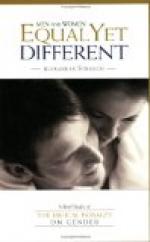A distinguished European writer observes: “The Hindoos seem to have legislated with the greatest care and detail concerning women. Yet by no people, legally speaking, is her individuality more entirely ignored; and in no country is the slavery in which she lives, at once so systematic, refined, and complete as it is in India, where the lawgiver and the priest are one. The oppressive custom of life-long guardianship is expressly ordained. By a girl, or by a woman advanced in years, nothing must be done, even in her own dwelling-place, according to her mere pleasure. In childhood must a female be dependent on her father, in youth on her husband; her lord being dead, on her sons; if she have no sons, on the near kinsman of her husband; if he left no kinsman, on those of her father; if she have no parental kinsman, on the sovereign. A woman must never seek independence."[D] Not permitted to have any discretionary power over her own actions at any period of her life, but held in every respect subject to the will of her husband, or some other male guardian, she is nevertheless to be unswervingly faithful to her lord while he lives; and no matter how cruelly he may have treated her, she is loaded with contumely, reproach, and scorn, if she refuses to lay herself upon the funeral pile, and in the flames pass into another state of being, to do honor to him who through life had been an unrelenting tyrant. Knowing the obloquy which attaches itself to the widow who recoils from such a fearful death-bed, and ignorant, too, of the “better way,” the unfortunate creature generally yields to the pressure brought to bear upon her, and terminates a miserable life by an awful death; her horrid shrieks, while burning, mingling with the clamor of sounds raised to drown them by the heartless throng of spectators, and yet sometimes rising with distressing distinctness above them. When the wife of a Hindoo dies, does he sacrifice himself upon a funeral pile, in order to honor her in another state of existence? By no means. His precious body can not be committed to the flames; they are too hot for his manly courage. He burns her corpse with what are termed appropriate offerings; and, if so disposed, adds a new wife to his household, thus soothing his sorrow.
In Australia, the practice of early betrothal is nearly universal among the natives; men of distinction having several wives at the same time, and these varying in age from the little child to the woman of mature years. But while polygamy prevails to a fearful extent among the men of the wealthier class, many of the men of the humbler ranks remain unmarried, because they are unable to raise the purchase-money which secures them their domestic drudge. In the western part of Australia, especially before the benefits of civilization began to be felt in the island, it was the practice to betroth the daughters to some individual, immediately upon their birth; and should the man, or male child to whom the infant girl was




